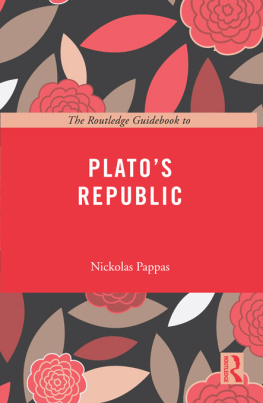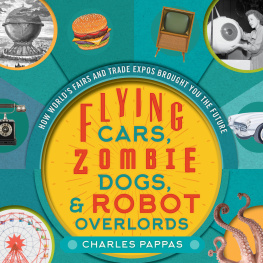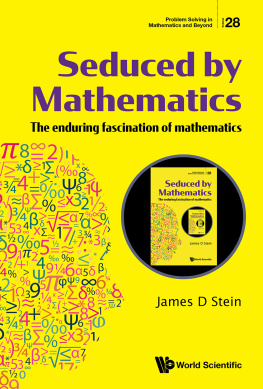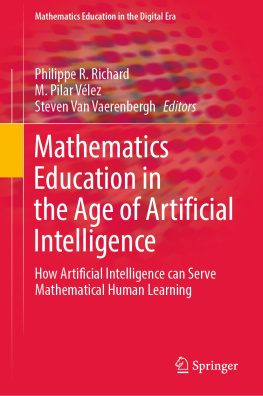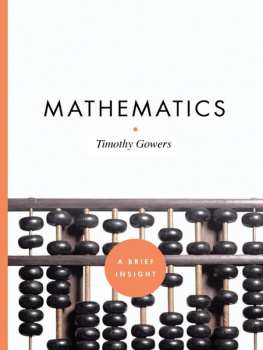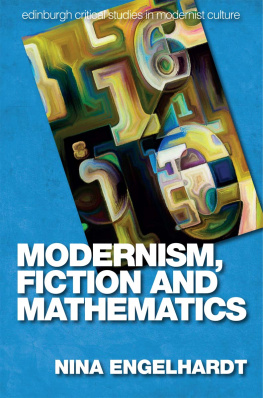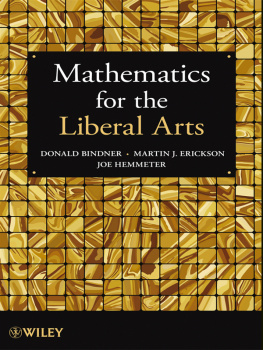THE
MAGIC
OF
MATHEMATICS
Discovering the Spell of Mathematics
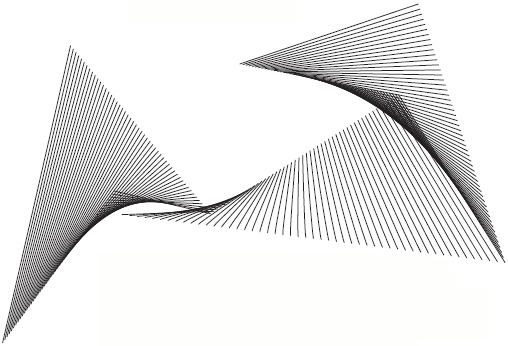
THEONI PAPPAS
author of The Mathematics Calendar &
The Joy of Mathematics
Copyright 1994 by Theoni Pappas.
All rights reserved. No part of this work may be reproduced, copied or transmitted in any form or by any means without written permission from Wide World Publishing/Tetra.
Portions of this book have appeared in previously published works, but were too essential a topic to not be included.
Wide World Publishing/Tetra
P.O. Box 476
San Carlos, CA 94070
web sites:
http://www.wideworldpublishing.com
http://www.mathproductsplus.com
Ninth Printing, October 2011
Library of Congress Cataloging-in-Publication Data
Pappas, Theoni,
The magic of mathematics : discovering the spell
of mathematics / Theoni Pappas.
p. cm.
Includes bibliographical references and index,
ISBN 0-933174-99-3
1. Mathematics - - Popular works. I. Title.
QA93, P368 1994
This book is dedicated to
mathematicians
who have created and
are creating
the magic of mathematics.
The moving power of mathematical invention is not reasoning but imagination.A. De MorganThe essence of mathematics is its freedom. Georg Cantor The beautiful has its place in mathematics for here are the triumph of creative imagination. W.K. White There is no branch of mathematics, however abstract, which may not someday be applied to the phenomena of the real world. Nikolai Lobachevsky It may well be doubted whether, in all the range of science, there is any field so fascinating to the explorer so rich in hidden treasures so fruitful in delightful surprises as pure mathematics. Lewis Carroll Mathematics rightly viewed possess not only truth, but supreme beautya beauty cold and austere, like that of a sculpture. Bertrand Russell As far as the laws of mathematics refer to reality, they are not certain, and as far as they are certain, they do not refer to reality. Albert Einstein The profound study of nature is the most fertile source of mathematical discoveries. Joseph Fourier Mathematics may be defined as the subject in which we never know what we are talking about, nor whether what we are saying is true,Bertrand Russell How can it be that mathematics, a product of human thought independent of experience, is so admirably adapted to the objects of reality. Albert Einstein The mathematician does not study pure mathematics because it is useful; he studies it because he delights in it and he delights in it because it is beautiful. Henri Poincar
CONTENTS
Y ou dont have to solve problems or be a mathematician to discover the magic of mathematics. This book is a collection of ideas ideas with an underlying mathematical theme. It is not a textbook. Do not expect to become proficient in a topic or find an idea exhausted. The Magic of Mathematics delves into the world of ideas, explores the spell that mathematics casts on our lives, and helps you discover mathematics where you least expect it.
Many think of mathematics as a rigid fixed curriculum. Nothing could be further from the truth. The human mind continually creates mathematical ideas and fascinating new worlds worlds independent of ours and presto these ideas connect to our world almost as if a magic wand were waved. The way in which objects from one dimension can disappear into another, a new point can always be found between any two points, numbers operate, equations are solved, graphs produce pictures, infinity solves problems, formulas are generated all seem to possess a magical quality.
Mathematical ideas are figments of the imagination. Its ideas exist in alien worlds and its objects are produced by sheer logic and creativity. A perfect square or circle exists in a mathematical world, while our world has only representations of things mathematical.
The topics and concepts which are mentioned in each chapter are by no means confined to that section. On the contrary, examples can easily cross over the arbitrary boundaries of chapters. Even if it were possible, it would be undesirable to restrict a mathematical idea to a specific area. Each topic is essentially self-contained, and can be enjoyed independently. I hope this book will be a stepping stone into mathematical worlds.

Mathematics and sports are a dynamic duo. Baseball is full of math ideas from computing averages and stats to the physics of pitching and batting.
Photo courtesy of the U.S. Federal Government.
There is no branch of mathematics, however abstract, which may not someday be applied to phenomena of the real world.Nikolai Lobachevsky
S o many things with which we come into contact in our daily routines have a mathematical basis or connection. These range from taking a plane flight to the shape of a manhole. Often when one least expects, one finds mathematics is involved. Here is a random sampling of such cases.

Woodcut by Jrg Breu displayed as Emblema LXXV in the Book of Emblems by Andrea Alciato (1531). Illustrating the myth of Icarus & Daedalus. Icarus attempts to escape from King Minos, but the artificial wings his father Icarus designed fall apart as he flies to close to the Sun.
THE MATHEMATICS
OF FLYING
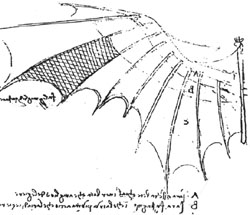
Leoanrdo da Vinci wrote: mancould subjugate the air and rise up into it on large wings of his won making. A thing exerts as much force against the air as the air exerts against it.

Sketches from da Vincis notebooks.
The grace and ease of the flight of birds have always tantalized humans desire to fly. Ancient stories from many cultures attest to interest in various flying creatures. Viewing hang gliders, one realizes that the flight of Daedalus and Icarus may not have been just a Greek myth. Today enormous sized aircrafts lift themselves and their cargo into the domain of the bird. The historical steps to achieve flight, as we now know it, has literally had its up and downs. Throughout the years, scientists, inventors, artists, mathematicians and other professions have been intrigued by the idea of flying and made designs, prototypes, and experiments in efforts to be airborne.
Here is a condensed outline of the history of flying:


